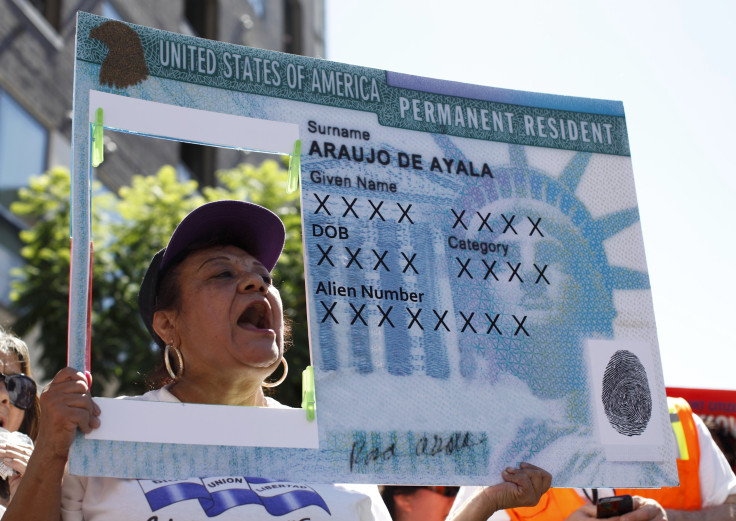Some Business Groups Unhappy About Obama’s Delay On Immigration Executive Action

The White House said over the weekend that President Obama would delay any executive orders on immigration reform until after the November midterm elections, stoking frustration and ire from many immigration advocates who had hoped for immediate action to bypass congressional deadlock. But business groups, some of which had lobbied vigorously with the Obama administration for reform measures over the summer, had a much more mixed reaction.
One of Obama’s most-watched options for executive action on immigration was a potential expansion of deportation relief to thousands, possibly millions, of unauthorized immigrants – a politically explosive move that was already triggering Republican backlash. But he was also expected to announce significant steps to streamline legal immigration pathways and had met with business leaders and interest groups more than 20 times during the summer to discuss visa and green card reform.
One executive action that some business groups hoped for involved revising the count for employment-based and family-based green cards. Doing so would free up additional permanent-residence visas and reduce long wait times and backlogs, advocates said.
“The challenge is that we have many people just caught in the backlog for green cards,” explained Lynn Shotwell, executive director for the Council for Global Immigration. “Depending on the country [an immigrant] is from, the wait can be decades long. We were hoping Obama would exercise executive authority to change the way that some of those visas are currently allocated. This is a solution that everybody’s known has been necessary for a long time, and we’re disappointed it’s delayed once again.”
“For business leaders, it sends a message that they can’t count on the U.S. always being open for business and being as efficient in some of these areas as some other countries are,” she added.
But Emily Lam, vice president of Health Care and Federal Issues for the Silicon Valley Leadership Group, said that long-term immigration reform was still the ultimate goal, and that this latest delay would not have much of an impact on businesses relying on high-skilled immigrants.
“It is a critical issue, given that our businesses thrive and survive on our ability to innovate, which is directly tied to our ability to recruit and [retain] top talent from around the world,” she said. “But we’ve been experiencing this for years, and a few months or more of delay for executive actions isn’t going to substantially change or affect our companies’ ability to operate.”
“We’re in close conversation with the administration about what can be done,” Lam added. “We have been for a really long time -- not just in this iteration, but just over the years in general. So for us, it’s just, ‘Let’s keep the ships steady.’”
For other business groups, executive action doesn’t present any solutions to begin with.
“High-skilled and agricultural [businesses] have programs that the president can tweak,” said Tamar Jacoby, executive director of ImmigrationWorks USA, a coalition of business organizations around the country. “But if you’re a kitchen worker, construction worker or janitor, there’s no program for you. There’s no way to get here legally. So there’s nothing for the president to tweak. There’s less for the small and medium-sized [businesses] to get out of an executive order.”
An executive order would not be able to create a new system for immigrants in jobs outside of the high-skilled and agricultural sectors, leaving the problem of unauthorized immigration unaddressed, Jacoby said. “The part that needs to get fixed is the legal system. Only Congress can fix that.”
But she said that issuing a politically divisive executive order could threaten future possibilities for Congress to pass immigration reform measures.
“The business owners I represent are skeptical that [executive action] is really going to fix anything,” Jacoby said. “And what it does for the whole climate in Washington – things are broken, but this is like the equivalent of a nuclear bomb. If Obama acts [unilaterally], he’s going to end the possibility that Congress will act.”
© Copyright IBTimes 2025. All rights reserved.





















